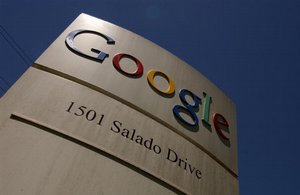KaZaA founders to 'borrow' your PC to distribute content
Published:
10 June 2003 y., Tuesday
Joltid, the Swedish peer-to-peer software company formed by KaZaA founder Niklas Zennstrom, has launched PeerEnabler, a secure content distribution technology that utilises users' own PCs to disseminate content for publishers.
PeerEnabler essentially uses peer-to-peer software to get content even closer to the edge of the network that content distribution services like Akamai.
But where Akamai mirrors content to servers around the globe and connects users' requests for content to their nearest servers, to improve users' access and download experience, PeerEnabler turns users' own machines into the equivalent of those local servers.
So if a software company, say, ships an update via the PeerEnabler network, users may actually download the code not from the developer's server but from a nearby user who has already grabbed the file.
Joltid's pitch is that this ensures users get a better experience and publishers "dramatically reduce bandwidth usage", presumably saving them money because they won't need to buy and operate as many servers in future.
Šaltinis:
theregister.co.uk
Copying, publishing, announcing any information from the News.lt portal without written permission of News.lt editorial office is prohibited.
The most popular articles
Software company announced new structure_ of it_s business.
more »
 Wincor Nixdorf is enhancing its consulting portfolio for the banking business.
more »
Wincor Nixdorf is enhancing its consulting portfolio for the banking business.
more »
 Wincor Nixdorf is set to present its ProClassic Enterprise Cash Management software for effective and rational organization of end-to end cash management processes in banks at the Retail Delivery Show.
more »
Wincor Nixdorf is set to present its ProClassic Enterprise Cash Management software for effective and rational organization of end-to end cash management processes in banks at the Retail Delivery Show.
more »
 Yahoo said Jerry Yang will step down as chief executive as soon as the board finds a replacement.
more »
Yahoo said Jerry Yang will step down as chief executive as soon as the board finds a replacement.
more »
 Wincor Nixdorf AG has turned in the best year in its history.
more »
Wincor Nixdorf AG has turned in the best year in its history.
more »
 Visa Inc. is working with the Los Angeles transit authority to allow train, subway and bus riders to pay fares with Visa’s payWave-enabled contactless cards.
more »
Visa Inc. is working with the Los Angeles transit authority to allow train, subway and bus riders to pay fares with Visa’s payWave-enabled contactless cards.
more »
 Customers line up in New York City to be the first to buy Google's new G1 phone.
more »
Customers line up in New York City to be the first to buy Google's new G1 phone.
more »
 Children and teenagers are keen internet users - 12 to 15-year-olds spend at least three hours a day on screen - but are not always aware of the dangers: not just sites showing child pornography or violence but also the risk of bullying or grooming.
more »
Children and teenagers are keen internet users - 12 to 15-year-olds spend at least three hours a day on screen - but are not always aware of the dangers: not just sites showing child pornography or violence but also the risk of bullying or grooming.
more »
 A European Commission study found that devices left on stand-by throughout the European Union in 2005 consumed the same amount of electrical energy as a country the size of Greece or Portugal in 2008.
more »
A European Commission study found that devices left on stand-by throughout the European Union in 2005 consumed the same amount of electrical energy as a country the size of Greece or Portugal in 2008.
more »
 The European Commission has launched a new web portal called “Study in Europe” to promote the attractiveness of European Higher Education to students from other parts of the world.
more »
The European Commission has launched a new web portal called “Study in Europe” to promote the attractiveness of European Higher Education to students from other parts of the world.
more »
 With the increasing availability of the internet, children are being exposed more and more to illicit images and content.
more »
With the increasing availability of the internet, children are being exposed more and more to illicit images and content.
more »